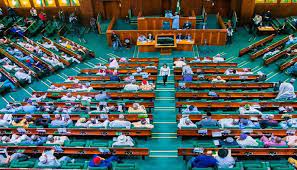…as Reps C’ttee call for local and int’l collaboration of key stakeholders
Chigozie Amadi
The United Nations Office on Drugs and Crime, UNODC, has expressed worry over lack of effective laws to address wildlife conservation and protection in Nigeria.
This happened as the House of Representatives Committee on Environment has called for local community and international key stakeholders collaboration with a view to ensuring that offences and sentences in wildlife crimes committed across countries are commensurate with these crimes committed
UNODC Country Representative in Nigeria, Oliver Stolpe made this known yesterday during the occasion of Policy Dialogue on the Review of the Endangered Species Conservation and Protection Bill, 2024 held at National Assembly in Abuja.
Stolpe further disclosed that his office has been clamouring for a review of the current legal framework in Nigeria noting that the present legal framework is not only deficient and ineffective but also lack adequate penalties for the protection and preservation of wildlife across the country.
He stated that: “the present legal framework has not only limited deterrent effect, but also does not meet the threshold of the serious crime definition in the UN Convention against Transnational Organized Crime”. He emphasized.
According to him, the weaknesses of the current legal framework in Nigeria is exemplified in the minimal sentences handed down to wildlife crime perpetrators who have been prosecuted and convicted in the recent past years through the relentless efforts of the Nigeria Customs Service, NCS.
While calling for urgent upward review of the laws on wildlife conservation and protection, he observed that higher penalties against perpetrators of crime against wildlife in Nigeria might curb all criminalities against those animals.
The UNODC helsman in Nigeria has lauded the organisers of the event describing it as an important milestone in Nigeria’s efforts to combat wildlife and forest crime.
The UNODC boss in an address had stated that the policy dialogue gathering was to review the Endangered Species Conservation and Protection Bill, expressing the hope that such will significantly improve the legal framework in Nigeria.
According to him, the expected legal review when finally regulate upon will assist Nigerian law enforcement authorities to fully activate the provisions of the UN Convention on Transnational Organized Crimes, UNTOC, as well as cooperate effectively with their counterparts countries to eliminate wildlife crimes.
In a remark, the Deputy Chairman, House of Representatives Commitee on Environment, Hon Terseer Ugbor said the Policy Dialogue on the Endangered Species Conservation and Protection Bill, 2024 scaled first reading in the House on the 28th March 2024.
He had earlier lamented against the triple-planetary crisis of climate change which includes: pollution, biodiversity loss stressing that such factors have threaten environmental sustainability, economic development as well as community wellbeing.
The lawmaker equally informed that biodiversity for instance is particularly threatened by the actions of wildlife criminals.
He further disclosed that some illegal activities like poaching and smuggling are a major sabotage to Nigeria economy.
The deputy chairman equally explained that the Wildlife crime has also fosters corruption, facilitates insecurity as well as presents opportunities for the spread of zoonotic diseases such as COVID-19.
Nigeria, he revealed has emerged with the unenviable status as a global hub for wildlife trafficking in recent years.























